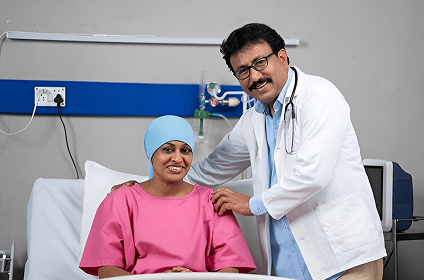Palliative care is a medical treatment designed to enhance the quality of life for people with serious or life-threatening illnesses, such as cancer. It may be administered with or without curative therapy. Along with cancer treatments that aim to stop, slow down or cure cancer, palliative care is a crucial component of medical therapy. Palliative care, according to research, can increase your quality of life and make you feel happier with your medical care. Palliative care may begin as soon as you find that you have cancer and you may continue to get it while undergoing treatment and recovering. For instance, palliative care may be provided to cancer survivors who continue to experience symptoms or side effects after their treatment has finished.
The purpose of your cancer treatment, which may include chemotherapy, surgery, or radiation therapy, is to lessen, stop, or ultimately eradicate the disease. One needs palliative care after the diagnosis of cancer while undergoing treatment, or even after completion of therapy when they are still experiencing side effects or symptoms.
The physical and mental effects of cancer and its treatment might vary greatly from person to person. Palliative care integrates a patient’s unique needs into treatment to address a wide range of problems.
More than 100 different medicines are used in chemotherapy for cancer. Despite the fact that all chemotherapy medications cause cell death, they target certain cell types at various points in the cell cycle. Combining medications that harm the cancer cell in several ways can improve the efficacy of the treatment.
Getting care is crucial once cancer therapy is over. Your medical team can assist you in managing long-term side effects and keeping an eye out for emerging ones. The term for this is follow-up care. Regular physical exams, diagnostic procedures, or a combination of both may be part of your follow-up care.
From the time of diagnosis until the patient’s passing, palliative care can be given to them. A patient may continue receiving cancer therapy while receiving palliative care.
Hospice care starts when the sole focus of care shifts from curative treatment to quality of life, unlike palliative care, which can start at any stage during cancer treatment.
Recent research suggests that adding palliative care to a patient’s regular cancer treatment soon
after receiving an advanced cancer diagnosis will enhance their quality of life and mood and may
even extend survival.

Early cancer detection using thermal mammography, providing radiation-free imaging for safer and more accurate breast cancer screening and diagnosis.

Personalized treatment attacking specific cancer cells, reducing harm to healthy tissues while increasing therapy effectiveness and reducing side effects for better patient outcomes.

A non-invasive technique reducing chemotherapy-induced hair loss by cooling the scalp, improving patient comfort and emotional well-being during cancer treatment.

Oncologist & Hematologist


MD Medicine (AIIMS) DM Medical Oncology (AIIMS) MRCP (UK), DNB, ECMO
Medico Oncologist & Hemato Oncologist

Indian Cancer Treatment Centre, unit of Sky Oncology LLP is a leading institution established with the aim to provide the best cancer treatment, to all types of cancer patients, in accordance with the latest and ever-changing advances in the field of oncology and provide the best cancer care